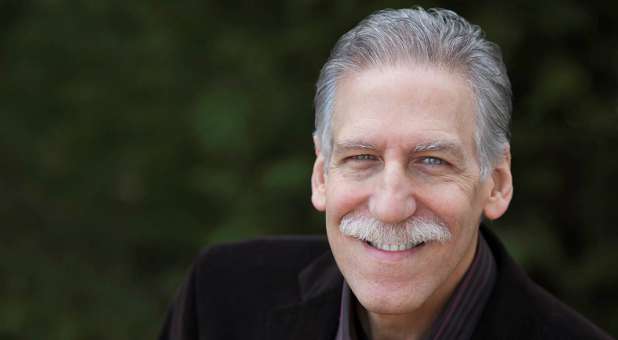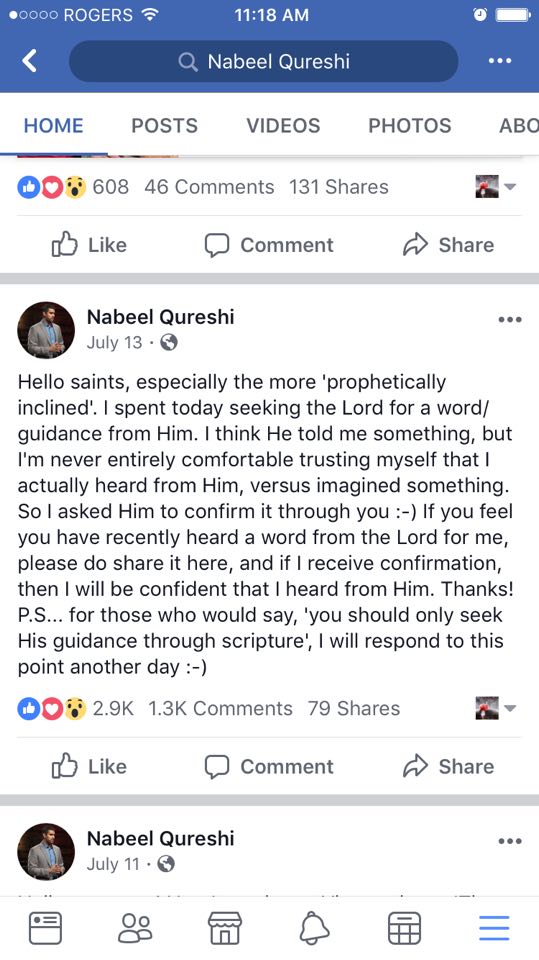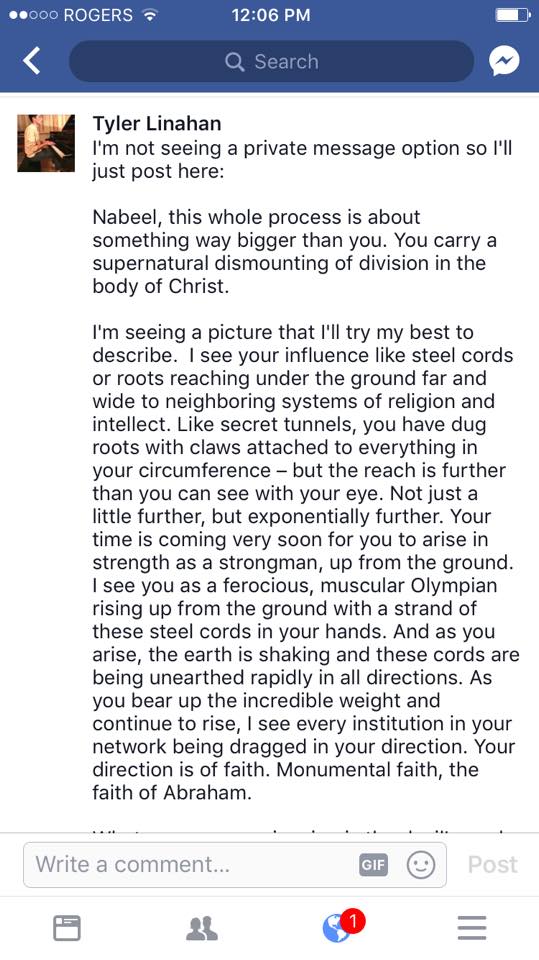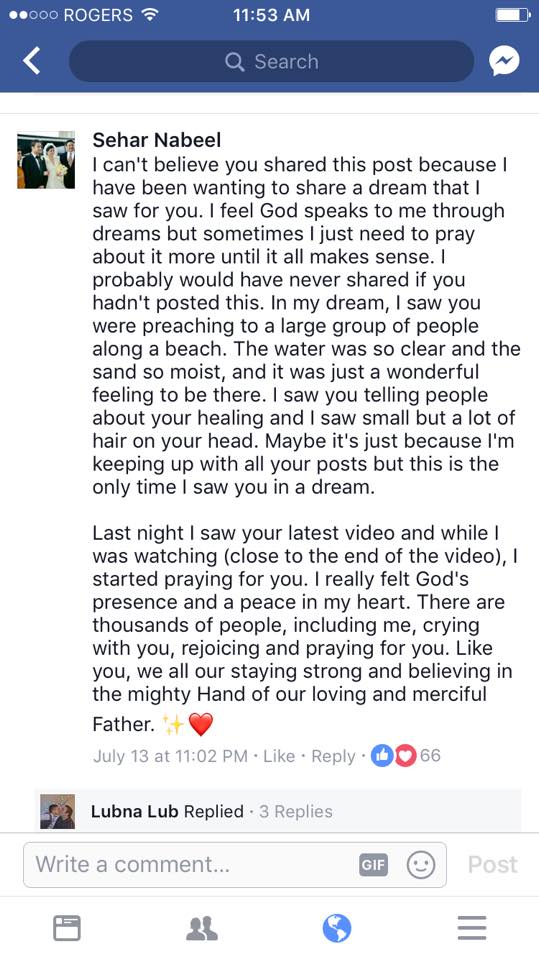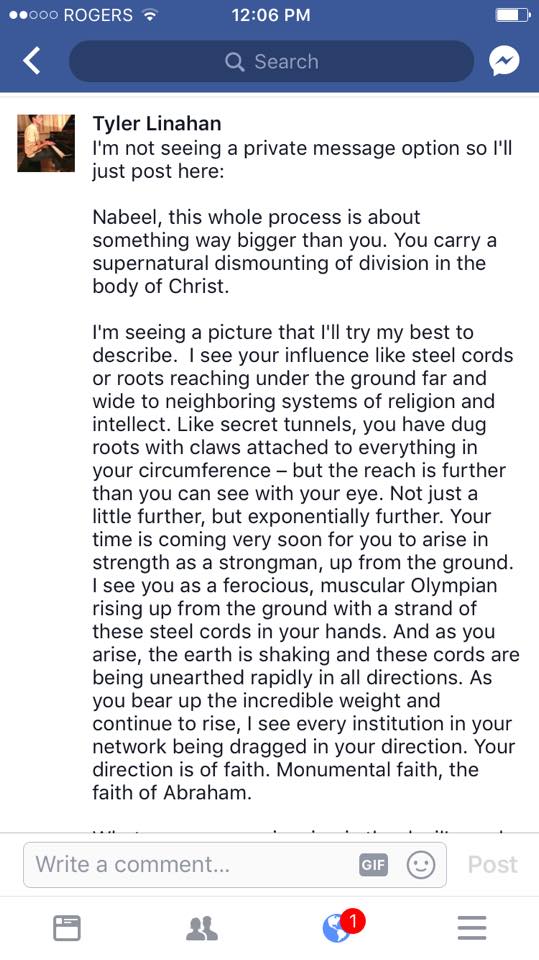I would like to preface this article by stating that I have no reason to believe that our brother in Christ, Nabeel Qureshi, is not in the presence of the Almighty God at this moment. Nabeel credibly professed faith in Christ alone–even humiliating himself in the face of real persecution to see the gospel go forth. Nabeel Qureshi, rest in peace.
This being said, there is no doubt that Nabeel was led astray into serious theological error during the last year of his long battle with stomach cancer. Qureshi sadly passed away on September 16, 2017, at the age of 34. Early in 2016, before Nabeel’s disease was publicly known, Pulpit & Pen began reporting on some concerns with inconsistencies in Nabeel’s testimony, calling into question his theological grounding and qualifications as an apologist. As usual, Pulpit & Pen was met with hostility from the likes of David Wood, Michael Brown, and others. Nonetheless, the concerns were valid, and eventually, came to full light as his questionable associations with false teachers and the charismatic movement came into full swing while battling cancer.
Qureshi, who had an incurable form of stomach cancer, was led to Bethel Church in the hopes that its charismatic “healing ministry” would be able to perform some kind of miracle to save his life. Bethel Church is a deceptive New Apostolic Reformation church that employs techniques such as piping glitter and smoke through its ventilation system to deceive its congregation into believing that they are experiencing a physical manifestation of the Holy Spirit in their presence. Bethel also practices a form of necromancy known as “grave sucking,” wherein one lies on the grave of a deceased person in hopes that he will be able to “suck” the anointing.
Michael Brown, a staunch defender of modern-day Montanism (a heresy that was denounced by the early church that believed in the continuing of the apostolic sign gifts, namely prophetic utterances) and an advocate for his boon companion, Bill Johnson, the leader of Bethel Church, recently penned an article, God Can Still Work Miracles. Why No Miracle for Nabeel Qureshi?, that seems to call into question the ministry of “divine healing,” yet he explains it away as though God is merely a genie that man must be able to properly control through faith and expectation.
Brown writes,
I personally believe that if Nabeel had been among those coming to Jesus for healing during His earthly ministry, he would have been healed on the spot. Yet Jesus told us that if we believed in Him, we could do the same works He did (John 14:12). Why, then, is there such a massive discrepancy between what He did by the Spirit and what we do by the Spirit?
I understand that Jesus was uniquely accredited by God with signs, wonders and miracles (for example, Acts 2:22). But surely, if His words are true (and they are!), we should be seeing many more healings and miracles today.
But we don’t. So that leaves a dilemma; either Jesus’ words aren’t true, or Montanists, like Michael Brown, aren’t understanding the text properly. I’ll go with the latter.
Perhaps if Nabeel had been on earth during Jesus’ ministry he would have been healed on the spot. We do not know for sure, but we do know one thing for sure, that Nabeel was not on earth during Jesus’ ministry, and that Nabeel was not healed. Why is there such a discrepancy? Because Brown twists the Scriptures to fit his theology. In John 14:12, Jesus was addressing the eleven remaining believing apostles, meaning, those [apostles] who believe after Judas had departed. This verse does not, in its proper context, imply that every single believer who walks the earth will be able to perform these miracles.
Claiming he was skeptical of charismatic beliefs during his early years of ministry, yet was saved in a Pentecostal Church and began to “witness sick people being healed by God’s power,” while questioning their validity, he says,
I still believe the testimony of Scripture, since my theology is based on the Word rather than on personal experience. And when I have experienced miraculous healing in my own life — including from Hepatitis C, apparently contracted when I was a drug user from 1969-1971 but not manifest until the mid-1990’s, after which I was healed — I have been thankful for divine confirmation of the Word.
(*Side Note: The Hepatitis Association states that up to 25% of adults with Hepatitis C infection will spontaneously clear the infection without treatment. (source))
Now that Brown’s beliefs have changed because of his experiences (even though he claims that’s not why), he wonders why more people aren’t being healed, he concludes that God isn’t always going to do His will, but that “healing was God’s ideal will for His obedient children, and that rather than praying, “Lord, if it be Your will to heal,” we should pray with the expectation that it was His will, sometimes even rebuking the sickness at its root.”
In other words, Nabeel could have been healed if more people were praying with the expectation that it is His will, rather than asking God to do His sovereign will independent of man. This is Word of Faith–it is a false gospel. See, here’s the thing. People WERE praying with the expectation that God would heal Nabeel. In fact, people were (falsely) prophesying of dreams and visions from God that he would be healed of his disease and made stronger than before. Yet, this did not come to pass. (If you want to know what this makes these people, see Deuteronomy 18:22)
So, Brown leaves us with “some things to consider” regarding the death of Nabeel Qureshi, and here I will address them:
You might believe that the devil is a thief and a murderer, and therefore, in your view, Satan killed our brother. I would just urge you to remember that Nabeel placed his life in God’s protective hands, and many prayed for his healing and rebuked the devil. You might want to give your viewpoint further prayer and reflection. Otherwise, how can you be so sure the devil can’t get to you?
The devil is a thief and a murderer (John 8:44, etc.), but no, I don’t believe this is why Nabeel died. The Bible says that we die because of sin. Romans 6:23, “For the wages of sin is death, but the free gift of God is eternal life in Christ Jesus our Lord,” and Romans 3:23, “For all have sinned and fall short of the glory of God,” therefore, we will all die. At least, we will all die a physical death. We have no power to rebuke the devil, for it is God alone that who can rebuke the devil. In Jude 1:9 we see that even the most powerful Angel in Scripture deems it blasphemous to rebuke the devil himself, stating instead “The Lord rebuke you!”
You might believe that God simply decided to take his son home, purifying his character through cancer. I would just ask you for scriptural examples of our Father doing this. And why, again, is serious sickness virtually always associated with curses, sin, demons or the devil in the Word? Why is sickness, in and of itself, never spoken of as a blessing from the Father? (I don’t think Job or Paul’s thorn are exceptions to this statement.)
Brown’s view here is untenable and unbiblical. I agree with him that sickness is associated with these evil things, namely sin because it is sin that brought these evil things into the world. It is the curse of the fall that we live under. However, Romans 8:28 also says, “And we know that for those who love God all things work together for good, for those who are called according to his purpose.” This means that even though man’s sin separated us from God, God is still sovereign over all things and will use these things to glorify Himself, which in turn benefits His people. Make no mistake, God is glorified in the death of Nabeel Qureshi.
But he said to me, “My grace is sufficient for you, for my power is made perfect in weakness.” Therefore I will boast all the more gladly of my weaknesses, so that the power of Christ may rest upon me. — 2 Corinthians 12:9
You might believe that somewhere, somehow, sick people must be guilty of secret sin, otherwise they could not be attacked like this. But in holding this position, you are acting like the friends of Job, whom the Lord rebuked at the end of that book. (You’re also forgetting verses like John 9:1-3.) And could it be that you find it necessary to come up with this theology as a means of self-protection, since, if a godly leader can get sick, you can get sick too?
You might say, “Obviously, people who die of sickness don’t have enough faith.” But that would also mean that the many people who prayed for Nabeel, including some used powerfully in healing, lacked faith too. And if you have so much faith, why didn’t you successfully pray for his healing?
The simple fact is, anybody can get sick, and it is not dependent on how much faith we have, or how godly we are whether or not God chooses to heal us. The Bible simply does not teach Word of Faith theology. It is God alone who controls all things (Eph 1:11). In fact, God even goes so far as to say in Isaiah 45:7, “I form light and create darkness, I make well-being and create calamity, I am the Lord, who does all these things.”
Michael Brown has been fondling these dangerous doctrines of demons for too long, acting as though he’s the “voice of reason” within the charismatic movement, he continues to promote dangerous false teachers like Bill Johnson and Benny Hinn. These are the people who store up wrath for themselves by continually blaspheming the Holy Spirit, practicing witchcraft in the name of Jesus.
Michael Brown, if you don’t come from among this movement, you are knowingly and willingly partaking in their sin. I’m calling on you to repent of this blasphemy that you support, reject it, denounce it, and turn away from it completely or you too may just find yourself face to face with Christ someday saying “Lord, Lord, did I not prophesy? Did I not perform these great works in your name?” only to hear, “depart from me, I never knew you.”

